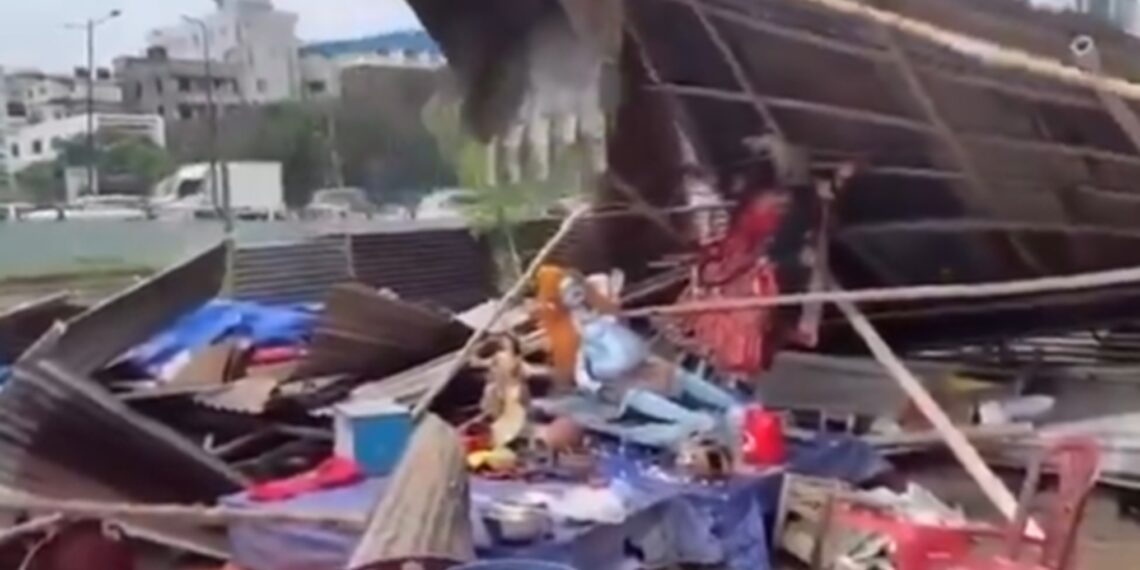New Delhi: India has strongly criticised the demolition of the Durga Mandir in Dhaka, calling out the Muhammad Yunus-led interim government for its role in the incident.
The Ministry of External Affairs (MEA) expressed dismay at the destruction, attributing it to extremist pressures and alleging that the government allowed the demolition under the pretext of illegal land use.
Speaking at a weekly media briefing, MEA spokesperson Randhir Jaiswal remarked, “Reports indicate that extremists demanded the demolition of the Durga temple in Khilkhet, Dhaka. Instead of safeguarding the temple, the interim government allowed the destruction, labeling it as an issue of land encroachment.”
He added that the deity was damaged during the process, underscoring the government’s failure to protect minority religious institutions.
Jaiswal reiterated India’s stance on the matter, emphasizing that it is the responsibility of Bangladesh’s interim administration to safeguard the rights, properties, and places of worship of the Hindu minority community.
The incident has drawn further attention following a report by the Human Rights Congress for Bangladesh Minorities (HRCBM) earlier this week, which detailed a separate act of vandalism at a Mahastri Manasa and Durga Temple in Dinajpur.
According to the HRCBM, the attackers desecrated idols, including the severing of the head of the Goddess Manasa’s idol, and issued threats of further violence against the local Hindu population.
The HRCBM described the attack as a deliberate act of intimidation aimed at instilling fear within the Hindu community, highlighting the ongoing challenges faced by minorities in Bangladesh.
India has consistently raised concerns over what it describes as systematic persecution of Hindus in Bangladesh, with particular focus on the policies and actions of the Yunus-led interim government.
Separately, the MEA also responded to questions regarding the recent trilateral meeting between China, Pakistan, and Bangladesh in Kunming, China.
Jaiswal noted that India is closely monitoring developments in the region that may impact its security and interests.
ALSO READ: 128-year-old mosque demolished in Dibrugarh for flood mitigation project
“While we maintain independent relations with each country, we also factor in the evolving regional dynamics,” he said.
The meeting, held in China’s Yunnan province, focused on strengthening regional connectivity and enhancing cooperation in areas such as trade, agriculture, digital economy, and cultural exchange.
Bangladesh’s growing alignment with China and Pakistan under Yunus’s administration has drawn attention, particularly given the historically strained relations between Dhaka and Islamabad.
Observers suggest that Pakistan may be leveraging this shift to position its non-state actors within Bangladesh, mingling them with Rohingya refugees and supporting radical groups involved in anti-India activities.















